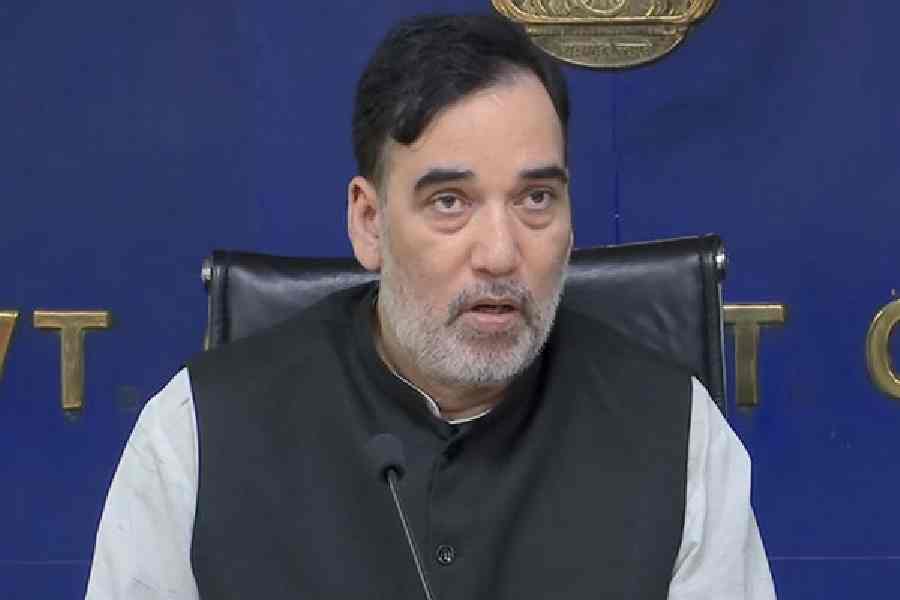Delhi Environment Minister Gopal Rai on Sunday demanded the Centre impose a strict ban on buses operating with poor-quality diesel in the NCR areas of Haryana, Uttar Pradesh and Rajasthan.
During a surprise inspection at the Kashmere Gate interstate bus terminal, the minister found that all buses registered in Haryana, Rajasthan and Uttar Pradesh were BS III and BS IV vehicles.
"Vehicular emissions account for a significant portion of Delhi's air pollution. While buses in Delhi operate only on compressed natural gas and electricity, those belonging to the neighbouring states of Haryana, Uttar Pradesh and Rajasthan are BS III and BS IV vehicles," he told reporters here.
Starting from November 1, only electric, CNG and BS VI-compliant diesel buses will be allowed to operate between Delhi and the cities and towns in Haryana, Uttar Pradesh and Rajasthan that come within the National Capital Region, or NCR, according to directions issued by the Centre's Commission for Air Quality Management (CAQM).
"While the CAQM has issued strict directions in this regard, we demand that the Centre implement a complete ban on BS III and BS IV buses being operated in NCR areas of Haryana, Uttar Pradesh and Rajasthan," Rai said.
He also said the city government will issue notices to operators of BS III and BS IV buses coming into Delhi from NCR areas of Haryana, Uttar Pradesh and Rajasthan.
In an effort to reduce pollution levels, the Centre in April 2020 announced that all vehicles sold in India must comply with Bharat Stage VI (BS VI) emission standards.
Bharat Stage emission standards set legal limits on the amount of air pollutants such as carbon monoxide and particulate matter that vehicles in India can emit. These standards focus on improving emission control, fuel efficiency and engine design.
As vehicle manufacturers provide vehicles that meet these new norms, oil companies supply fuel that adheres to BS VI standards, known as the world's cleanest fuel.
The government launched the 'Red Light on Gaadi off' campaign to curb vehicular pollution on Thursday, a year after Lieutenant Governor V K Saxena put it on hold, questioning its effectiveness.
A 2019 study conducted by the Central Road Research Institute showed that keeping engines running at traffic signals can increase pollution levels by more than nine per cent.
A range of emission inventory and source apportionment studies carried out for Delhi in the past few years suggested that on-road vehicular exhaust emissions account for nine to 38 per cent of PM2.5 emissions in the capital.
The campaign will be conducted in all the assembly constituencies in the city on November 2, and more than 2,000 eco clubs will take it to every school on November 3.
Except for the headline, this story has not been edited by The Telegraph Online staff and has been published from a syndicated feed.











